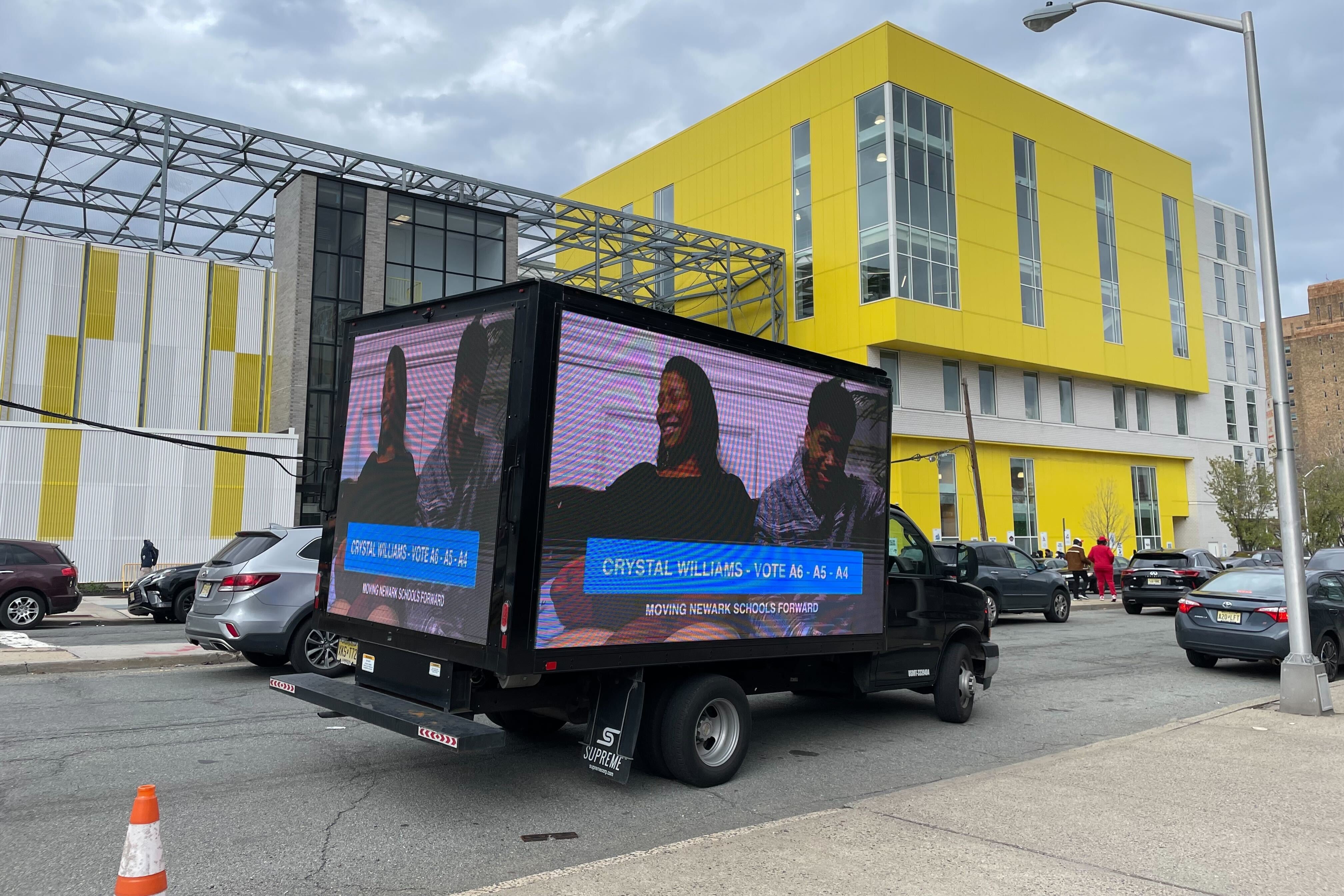Newark voters on Tuesday picked a slate of candidates endorsed by politicians and charter school advocates to fill three seats on the district’s nine-member school board, preliminary results show.
Newcomer Crystal Williams and incumbents Daniel Gonzalez and A’Dorian Murray-Thomas, who ran together on a slate called Moving Newark Schools Forward, were far ahead of the other four candidates, though not all votes had been counted as of Wednesday afternoon.
Voters also overwhelmingly approved the district’s $138 million tax levy, the amount of money raised through Newark property taxes to fund schools, which will remain the same as the current year. Preliminary results showed 2,792 votes in its favor and 417 votes against it.
The unofficial vote count showed Williams garnered the most votes at 2,600, while her slate mates were close behind, with 2,559 votes for Murray-Thomas and 2,475 votes for Gonzalez.
The other four candidates on the ballot were Thomas Luna, with 1,087 votes; Maggie Freeman, with 1,027 votes; Phillip Wilson, with 807 votes; and Allison K. James-Frison, with 679 votes.
Williams is a graduate of Chad Science Academy, an Afrocentric private high school in Newark that has since closed, and has worked at Verizon for more than 25 years.
Murray-Thomas will now serve her second full term on the board. Murray-Thomas, who attended the Chad School, a KIPP charter school, and a boarding school in Massachusetts through the support of the Wight Foundation, is the founder of a nonprofit mentoring program for girls in Newark. She’s also an English teacher and associate director of the diversity, equity, inclusion, and belonging at Morristown Beard School, a private school in Morristown.
Gonzalez, who graduated from East Side High School, previously served as the city’s chief financial officer under former Newark Mayor Sharpe James. He was elected last year to serve a one-year term, and this would be his first full term.
“I’m looking forward to the opportunity to continue what I started,” Gonzalez said Wednesday afternoon. “Using my experiences in finance, I’m going to keep advocating for our students and make sure that we’re giving them the tools necessary to learn.”
The slate had support from influential politicians, including state Sen. M. Teresa Ruiz, the state senate majority leader; Assemblywoman Eliana Pintor Marin, who chairs the Assembly budget committee; Mayor Ras Baraka; and eight out of nine city council members.
Low turnout and timing of election draw scrutiny
Vote totals so far signaled another year of very low turnout in the Newark school board April election.
Fifteen out of 95 precincts in Newark still had not reported any results as of Wednesday afternoon, while many others reported low numbers. One precinct in the north ward stood out with 1,529 ballots cast out of 2,036 registered voters in that precinct, for a significant turnout of roughly 75%. But the largest precinct in the city, located in the west ward, reported 7 votes cast out of 20,398 registered voters in that precinct, a turnout of .03%.
Around 5 p.m. on Tuesday, poll workers at West Side High School said they had just eight voters in the 10 hours that the polls had been open.
Newark has mayoral and council elections on May 10. Some candidates and campaign officials said voters might have tuned out the school board race, as more advertisements pop up around the city that are focused on the upcoming municipal elections.
Some candidates said it didn’t help that the election fell the same week as Newark Public Schools’ spring break, which could mean some families were out of town.
“It’s not surprising that we have low voter turnout, but it did seem even lower than normal,” said Luna, a math teacher at a KIPP charter school in the city. He added that his team worked all day Tuesday to call supporters and remind them to go vote.
Luna’s campaign had reported spending close to $9,000 as of the April 8 filing deadline. Meanwhile, a charter school-aligned special interest group spent $22,000 and Williams’ campaign committee spent about $3,000 to support the Moving Newark Schools Forward slate as of the filing deadline.
“There’s no way possible that I or local community members or parents can go up against that amount of money,” said Freeman, a longtime community volunteer who did not spend any money in the race. “The only measure we have is word of mouth, getting to know our neighbors, and making sure they know the work that is being done and who is doing it.”
Catherine Carrera is the bureau chief for Chalkbeat Newark, covering the city’s K-12 schools with a focus on English language learners. Contact Catherine at ccarrera@chalkbeat.org.






